I say this in the nicest possible way, when you woke up this morning your breath probably stunk.
It’s not really your fault, it’s something that happens to basically everybody though there are a few things you can do to take the edge off the effects.
Breathing through your nose and sleeping with your mouth shut helps, as does keeping a good level of oral hygiene.
A big part of smelly morning breath is the dryness, dehydration and lack of saliva in your mouth, so the right diet, hygiene and hydration will all help.
That routine of keeping your mouth clean involves brushing, flossing and washing, and you’ll want to swill out your mouth with the right mouthwash.
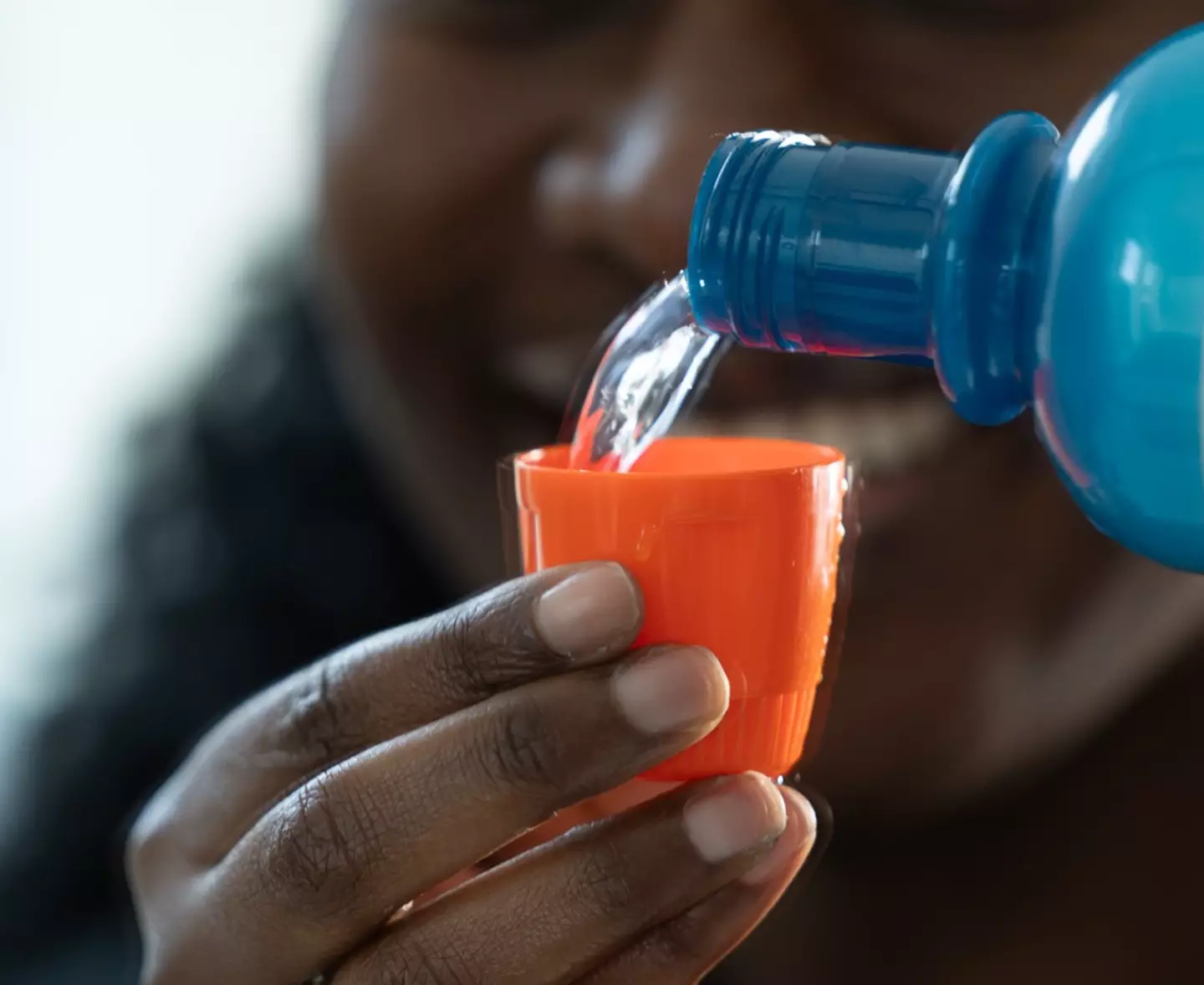
People who’ve tried it say it works well against bad breath, and they like how the blue one tastes. (Instagram/@therabreath)
This article contains affiliate links and LADbible Group might make a commission on anything purchased.
For that you might want to grab yourself a bottle of The Breath Co’s Oral Rinse mouthwash, which they say will keep your mouth safe against bad breath for 12 hours, so if you’re going to bed then a capful of this stuff just before you lay your head down on the pillow should do the trick.
They recommend that you swill one capful of the mouthwash round for a minute, and then gargle a fresh capful of the stuff for 30 seconds.
Currently available on Amazon for a limited time deal of £4.99 a bottle, this stuff was created by Dr Harold Katz to treat his daughter’s bad breath and the company claims it ‘seems like a miracle’.
The reviews for this stuff make it sound pretty good, with people who’ve tried it saying they’ve found it to be ‘the best mouthwash for nasty morning breath’.
Someone else who said they’d suffered from halitosis called it a ‘breath of fresh air’, if you’ll pardon them for their pun.
One reviewer who said they’d been gargling it for over a year now said they liked how it was alcohol-free and didn’t dry out their mouth.
Another said that it ‘does not leave a sugary aftertaste and does not burn’, which is nice.
If you’re wondering about taste then a few reviewers have said they prefer the blue one over the green one, the blue one seems to be stronger, but your personal preferences might vary.
Naturally you won’t want to be chasing your mouthwash with a midnight snack, so don’t go eating right after you’ve used it.
Some dentists also say you shouldn’t be using mouthwash right after you brush your teeth because you don’t want to wash away the fluoride residue.
Here’s hoping you wake up to mornings of minty fresh mouths and not a malodorous musk.
Featured Image Credit: Getty Stock Photo/Instagram/@therabreath
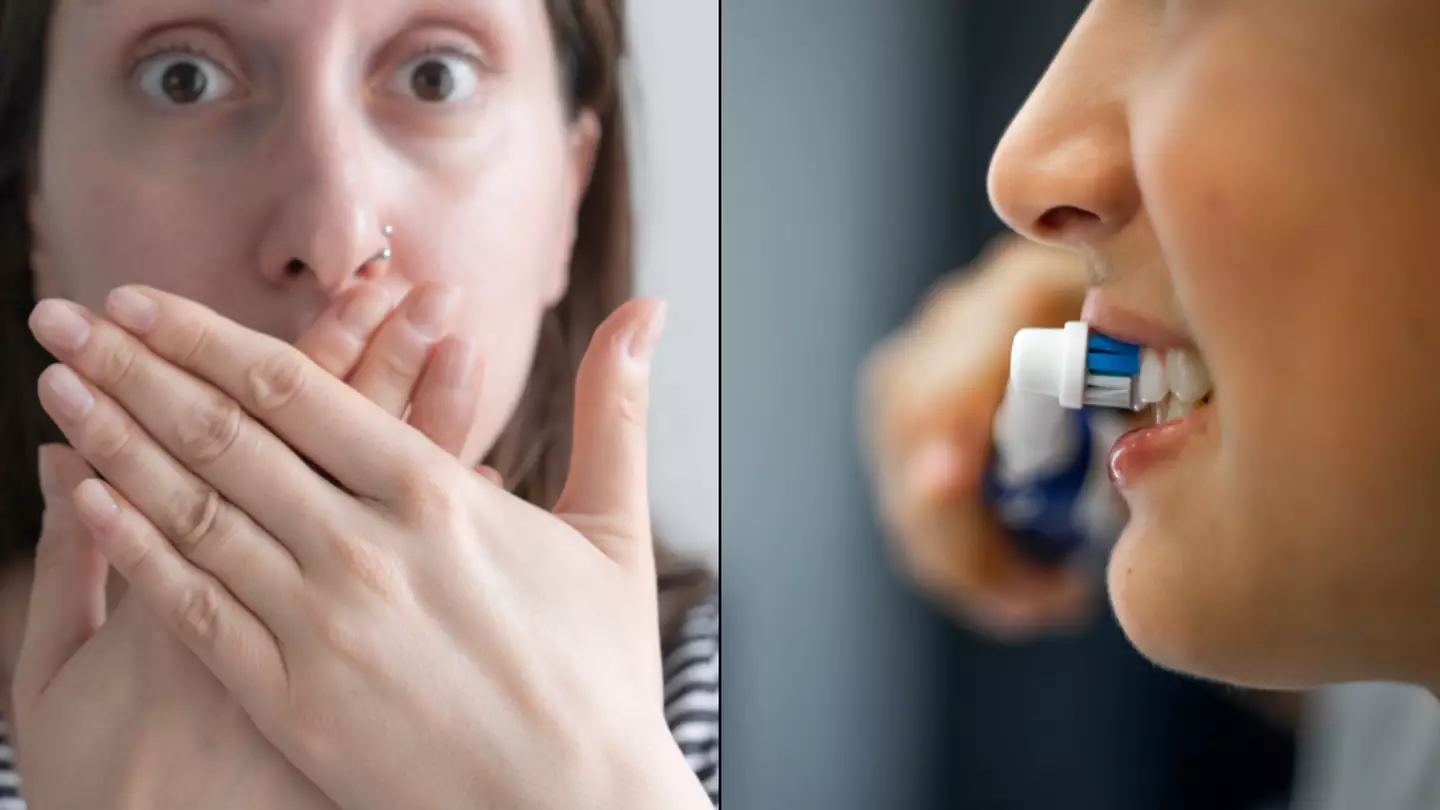
A simple trick might mean you’ll never leave the house in the morning with bad breath again – and it’s been backed up by experts.
Many of us will wake up and realise our mouth is… not the freshest.
While a dentist has revealed a simple trick to check if you have bad breath so you know if you need to start loading up on mints, wouldn’t it be better if we could just nip the problem in the bud.
Now, bad breath has also sorts of causes: eating strong-smelling foods (obviously), gum disease, crash dieting, smoking, and some health conditions.
But there’s also one morning habit most of us are guilty of that can give us toxic-smelling breath.
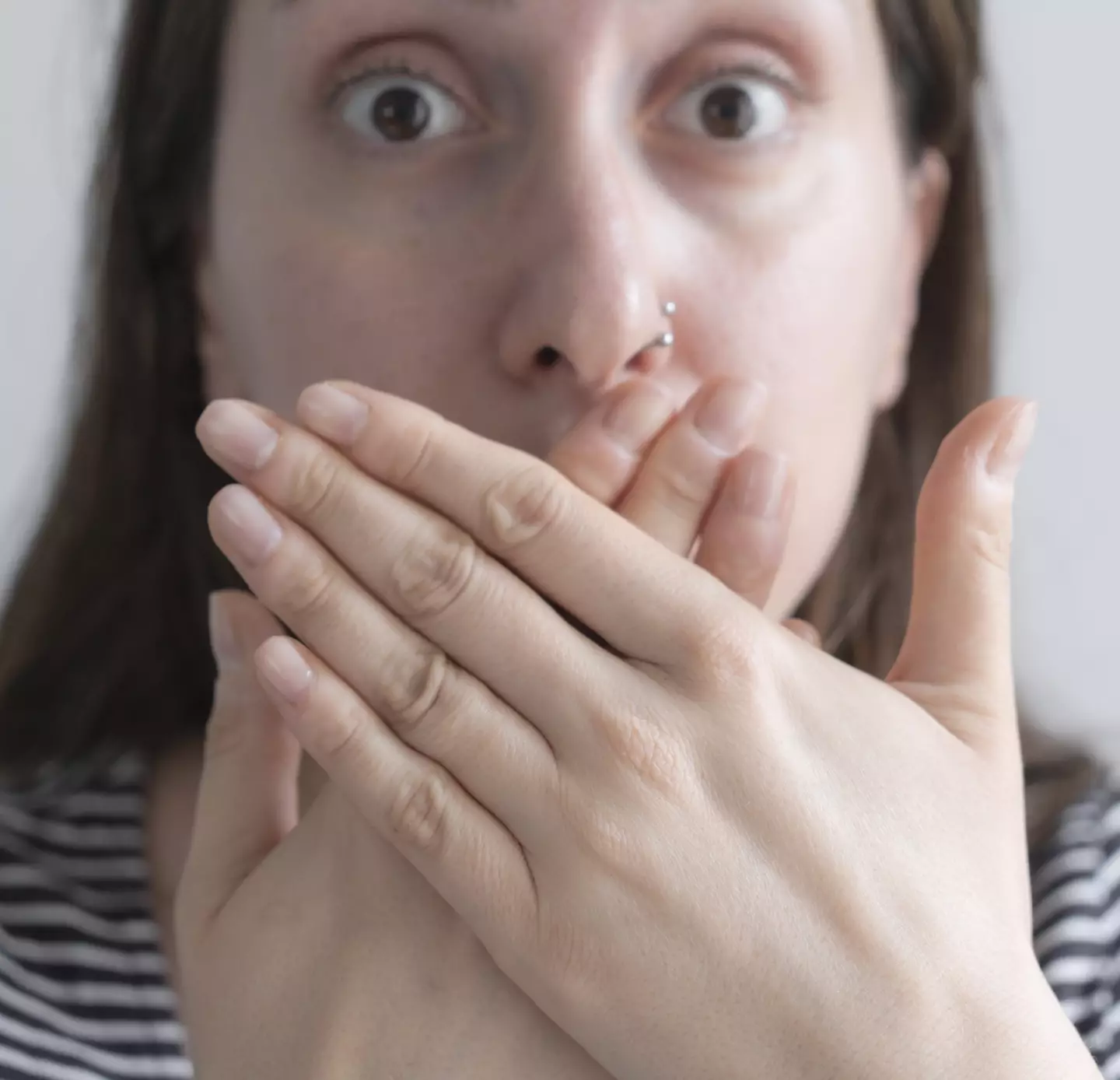
The man explained that eating causes a surge in acidity. (Getty Stock Images)
TikTok user@josezunigaimprovement decided to provide a little oral health advice on the internet.
He explained in the clip that if you brush your teeth immediately after eating breakfast, you are damaging your teeth.
He said: “When you eat, you introduce acidity to your mouth and it takes a while for it to go away.
“If you brush your teeth after eating, when your teeth and gums are more sensitive, it will damage them, causing them to bleed and ultimately giving you bad breath.”
He shared that you should wait 30 minutes after eating to brush your teeth to keep them clean, and if you don’t have that time to spare, try his trusted trick.
He said that drinking water, swishing it around your mouth for around 30 seconds and then spitting it out is the key to avoiding damaging your teeth.
Claiming that it’ll give you ‘good breath, always’, the influencer stands by his advice.
His advice is backed up by oral health experts too.
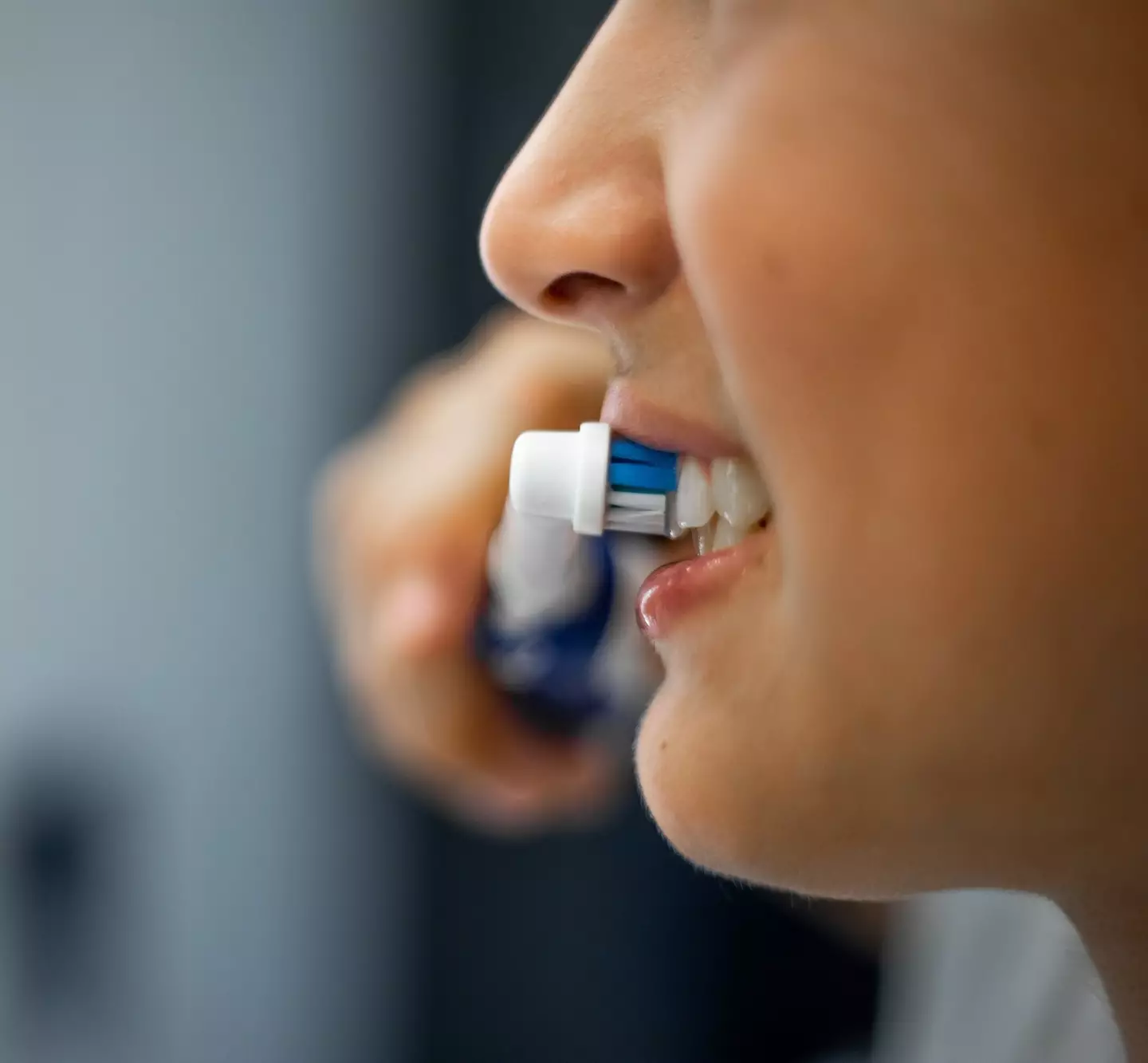
It turns out, he’s right. (Getty Stock Images)
For instance, toothpaste brand Colgate explained that ‘orange juice and coffee are notoriously acidic’ and brushing your teeth right after eating or drinking these acidic foods can damage your tooth enamel.
If you are a person who eats or drinks those foods, you can brush after breakfast and wait half an hour.
But if you don’t have the time to wait, then brushing before you eat is the way to go.
Colgate shared that if you brush before you eat, you can rely on mints throughout the day to keep fresh.
According to Ezzard Rolle, DDS, assistant professor of dental medicine at Columbia University’s College of Dental Medicine: “We definitely recommend holding off on brushing after consuming anything acidic, whether it’s fruit, soda, juice, or sour candy.
“The reason for that is that when acids are in the mouth, they weaken the enamel of the tooth, which is the outer layer of the tooth.”
But the recommendation that the TikToker gives to bypass waiting that long by using water?
The American Dental Association recommends that drinking water or chewing sugar-free gum after eating and before you brush is a good idea.
So, maybe he’s not wrong after all
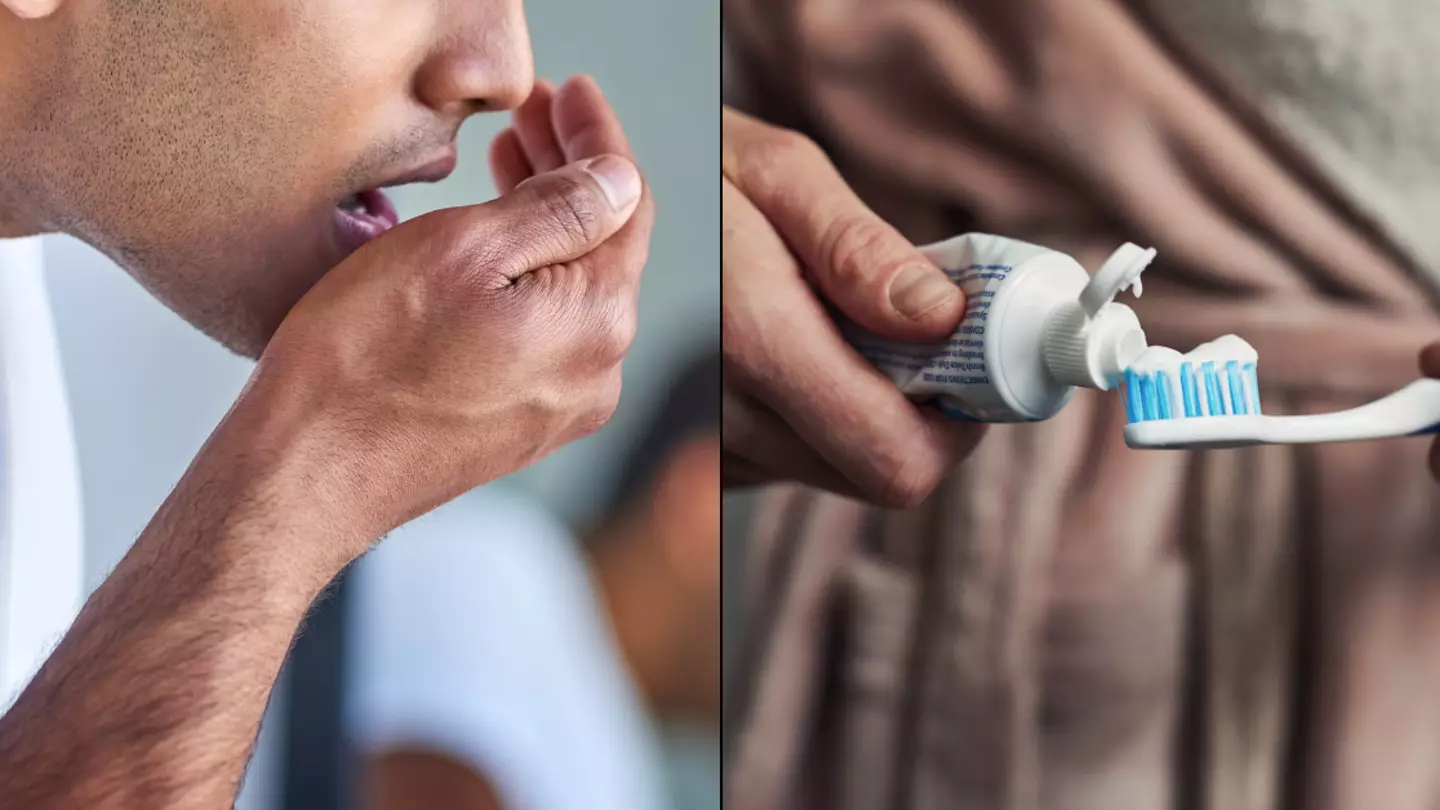
You know when you wake up in the morning and your mouth absolutely stinks despite you giving your teeth a thorough cleaning the night before?
That’s because during the night your mouth isn’t producing much saliva and a dry mouth is a smelly mouth.
Breathing through your nose and sleeping with your mouth shut helps, but some experts for Listerine have come up with five things you can do to tackle bad breath that isn’t buying their stuff.
Though, of course, they do say that if you brush, floss and wash then you should be able to stop it, but not everyone has the time to thoroughly floss.
Clean your tongue
First and foremost, clean that muscular organ that writhes around within your mouth hole known as the tongue.
Lots of oral hygiene is focused on scrubbing those teeth until they shine, but if you don’t do diddly squat about your tongue, then all the bacteria clinging to it are going to have a whale of a time.
Brushing your tongue is a pretty effective way to sort this out, but you would be best placed having a toothbrush with an actual tongue scraper.

Just brushing alone isn’t going to cut it. (Getty Stock Photo)
Stay hydrated
Secondly, while you should just stay hydrated as a general rule, it goes doubly so for banishing the olfactory assault that is bad breath.
Water helps clear out your system and reduces stinky breath, but it’s important to note that only water will do the job of water, so all the other stuff with flavour won’t be anywhere near as effective.
Doing things that help boost your saliva production are a boon, as staying hydrated helps with that in a big way.
Eat right
Eating meals can play a big part in it too, as the experts recommend that you get a proper breakfast down your gullet.
If you are to snack throughout the day, then they suggest that you gobble on crunchy fruits and veggies, or go for sugar-free sweets or chewing gum to get the saliva flowing.
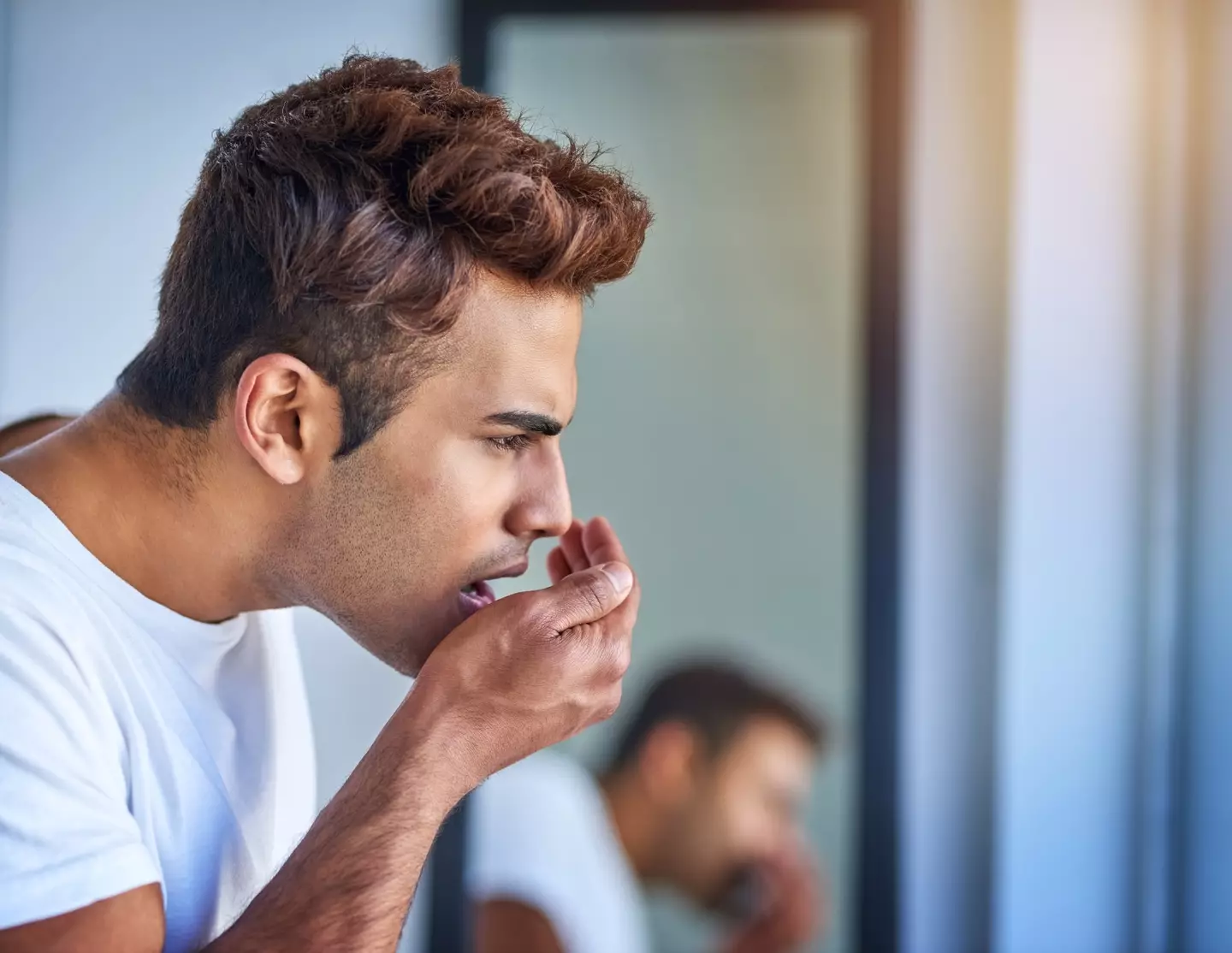
“Jesus Christ, I stink like something crawled into my mouth and died.” (Getty Stock Photo)
Biological warfare
If all that’s still not helping rid you of your rotten breath then you might look to some biological warfare to do the trick.
Apparently something called ‘lactobacillus’ could help reduce the bad bacteria in your mouth as they take over the spaces where the unwanted microbial interlopers like to hang out.
Think of your mouth as a lucrative holiday park and this ‘lactobacillus’ stuff as putting the towels down on the good sun-loungers.
Ask the pros
The fifth and final option is something that always ought to be on the table when you’re trying to tackle a serious problem, seeing professional help.
There’s nobody better qualified to look after your mouth than a dentist, though, of course, actually managing to find a dentist who has the time for an appointment is easier said than done as they’re very much in demand.
Featured Image Credit: Getty Stock Images
Topics: Health, Lifestyle, Hacks, Food And Drink, Scienc

The debate on whether it’s better to be an early riser or a night owl is one that has raged on for decades.
Most people will tell you that being an early riser is the ideal we should all strive for. Waking up early in the morning means you can make the most of daylight hours and start your day off on a productive foot.
However, bonafide night owls will insist that waking up at the crack of dawn just isn’t doable for them and that they’d much rather burn the midnight oil in order to check off their to do lists.
Early risers tend to get a better image, as their sleep schedules do correspond with the typical 9-5 workday after all, but is it more beneficial to be a night owl or an early riser?

Do you prefer an early start or a late night. (Getty Stock Images)
The science behind early birds and night owls
The idea of someone being an early bird, a night owl or most likely somewhere in-between comes from the idea of chronotypes – which is basically your body’s natural urge to sleep at a certain time.
Researchers have identified four different chronotypes – bear, wolf, lion and dolphin – with the ‘lion’ being closest to your typical early bird and wolf best resembling a night owl.
Most people who fall in the middle are represented by bears, people who follow the typical night/day pattern, whereas the unlucky souls who can’t sleep at all are dolphins.
So which is better: early bird or night owl?
Well, it depends on who you ask.
Researchers have long argued that early risers are happier and healthier than their late night counterparts, according to a 2012 study conducted by Renée Biss and Lynn Hasher from the University of Toronto, but this may not be entirely the case.
A new study, led by researchers at Imperial College London examined data from a group of 26,000 participants who completed tests of intelligence, reasoning, reaction time and memory tests.
And look away early risers because night owls have outperformed you on this study. The data showed that individuals who identified as night owls outperformed early risers, while those align somewhere in the middle also outperformed the early morning group.
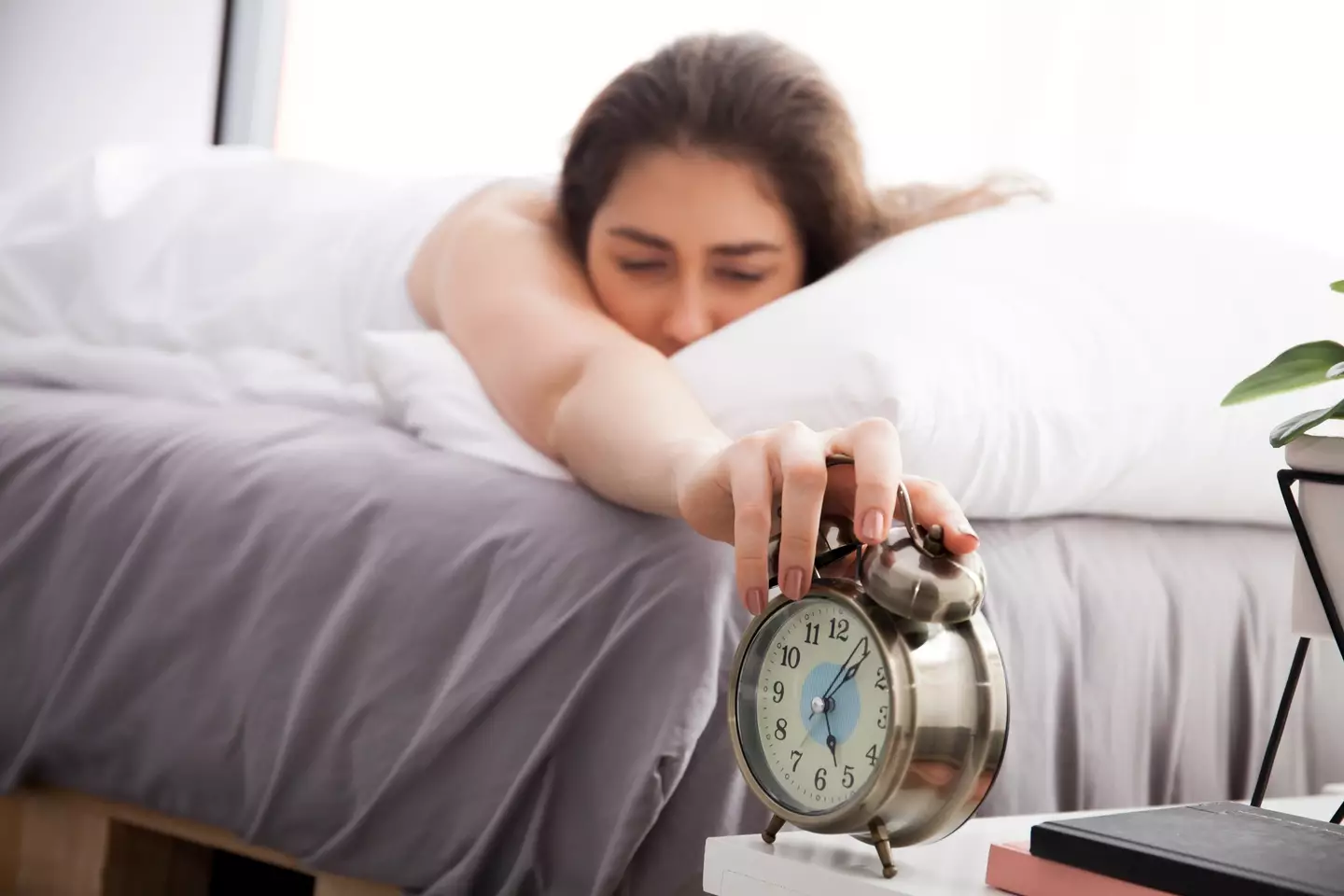
Finally some good news for alarm snoozers. (Getty Stock Images)
However, Raha West, one of the authors of the study, said this doesn’t mean early risers should be rushing to drastically adjust their sleep schedule.
“It’s important to note that this doesn’t mean all morning people have worse cognitive performance,” she said.
“The findings reflect an overall trend where the majority might lean towards better cognition in the evening types. While it’s possible to shift your natural sleep habits by gradually adjusting your bedtime, increasing evening light exposure, and keeping a consistent sleep schedule, completely changing from a morning to an evening person is complex.
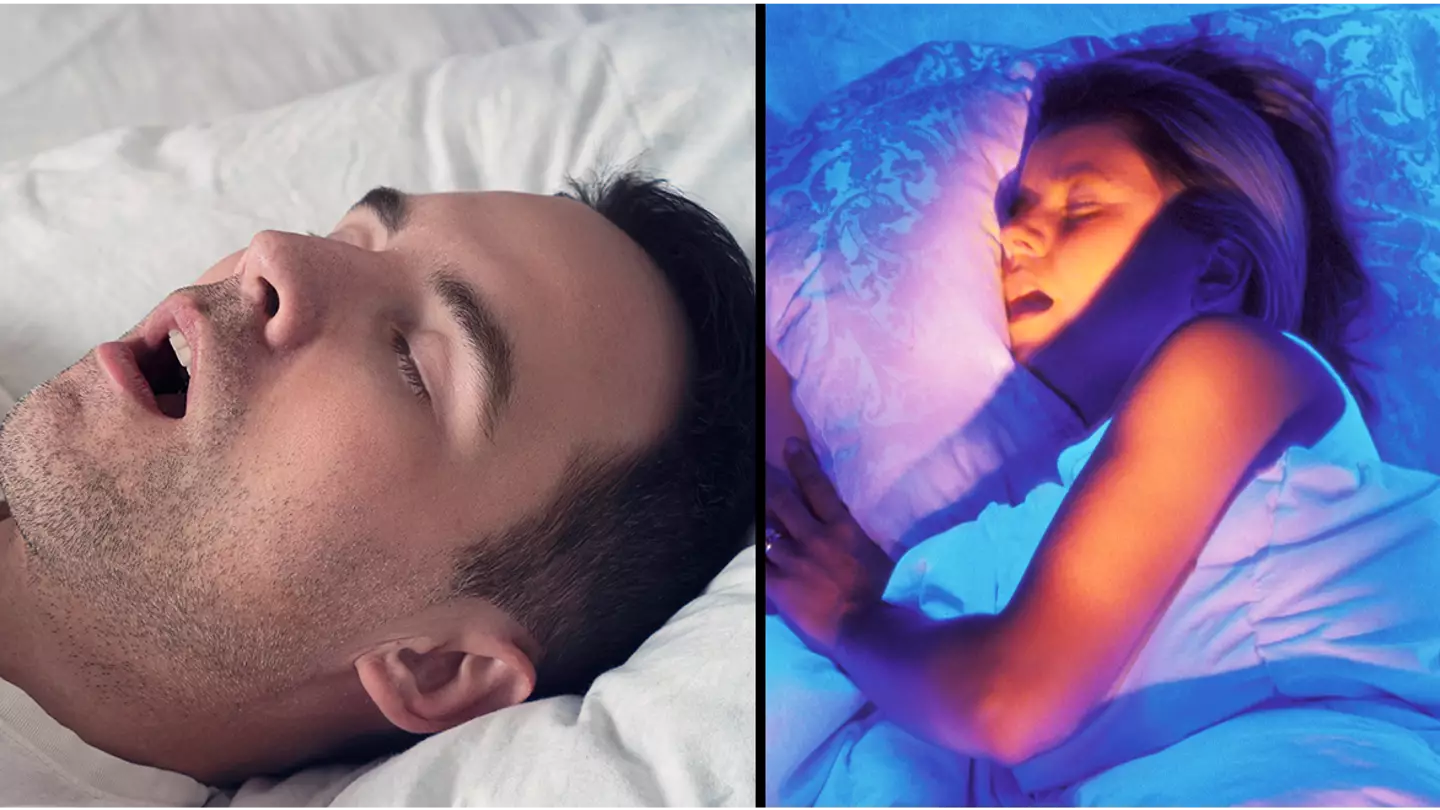
If you’re anything like me, you’ll sometimes wake up wondering why your breath smells like you’ve eaten three-day-old doner kebab in the middle of the night.
But it’s not necessarily something you did (or didn’t) eat that causes your breath to pong after having a good night’s sleep.
Many people will also wake up with dry mouth, and that’s because when you sleep, your mouth provides less saliva.
It’s when your mouth is dry that bacteria then thrive and goes on to eat dead cells and food particles on your tongue and around your mouth.
But that’s not even the grossest part…
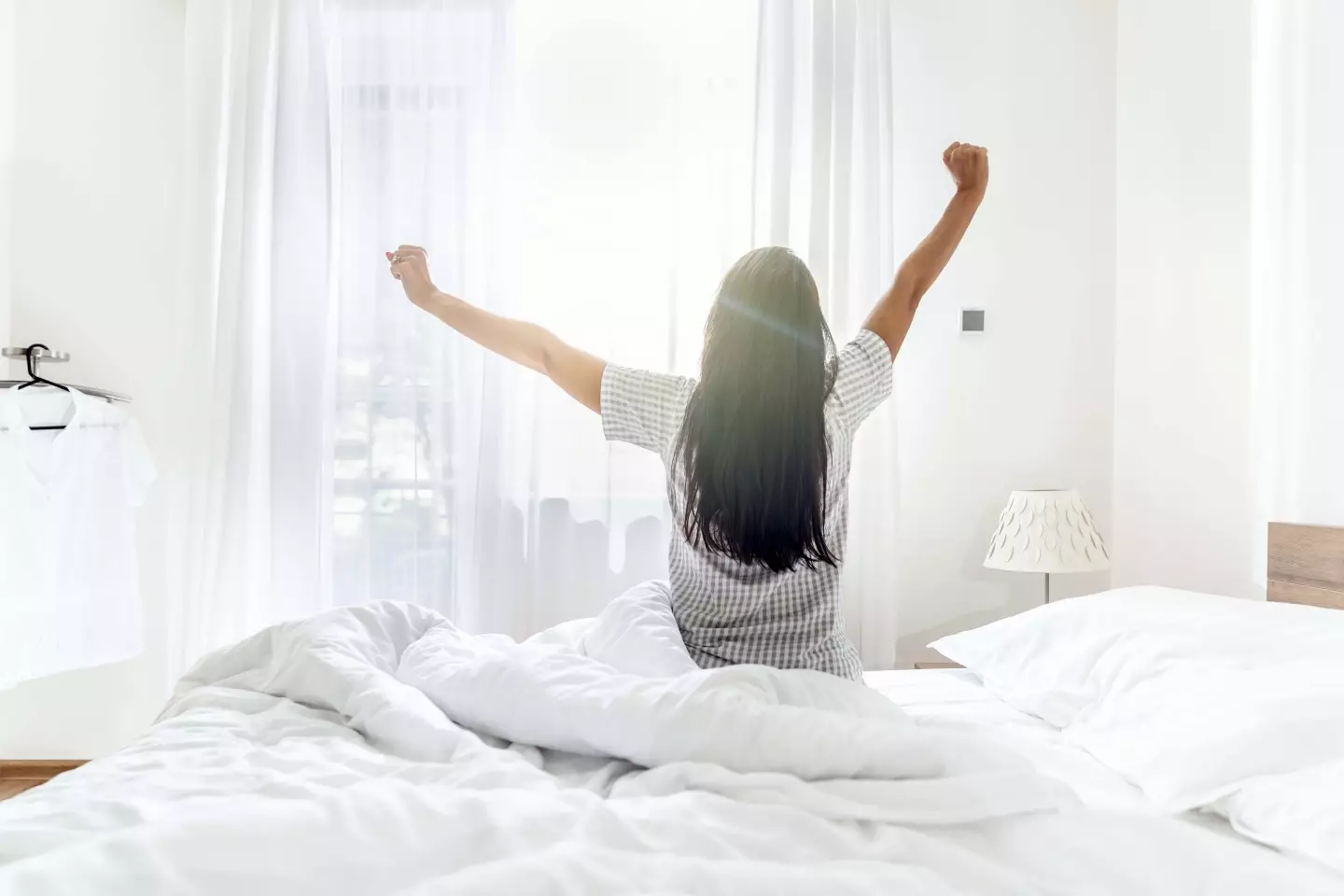
Getty Stock Images
The bacteria then leaves waste on your tongue which has sulphur in it, causing your mouth (and therefore your breath) to smell.
Horrified? Me too.
As to what we can do to help prevent such grossness, there’s a few things.
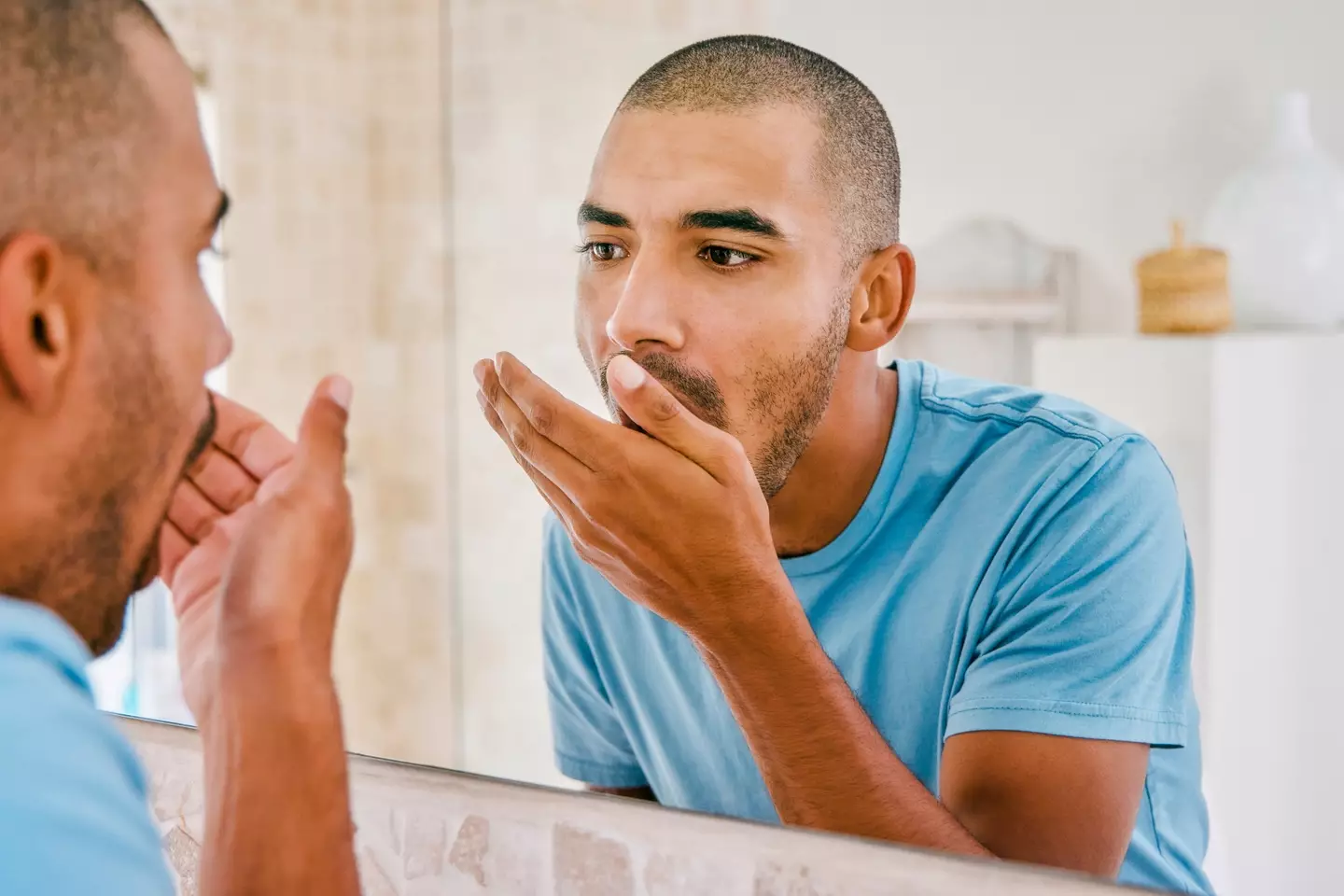
Getty/Moyo Studio
One suggestion is using a tongue scraper – which isn’t quite as torturous as it sounds.
It may help remove the nastiness form the back of your tongue.
While they help a bit, periodontist Dr. Wayne Aldridge points out that you’d need to get the scraper quite far back for it to be particularly effective, therefore using a safe-swallow-substance might be better.
An example would be Listerine’s Ready! Tabs, which dissolve into a liquid upon chewing that is safe to swallow.
They also stimulate saliva, says Patrica Golas, Ph.D., Principal Scientist and R&D Lead, Oral Care Research, Johnson & Johnson, so can help with dry mouth too.
“They’re designed to stimulate saliva, reduce the activity of the bacteria that cause bad breath and neutralise – not just disguise – odour,” she explained.
Another thing that can contribute to smelly breath is plaque build up on your teeth.
In a bid to keep plaque at bay, it’s said that brushing is ‘key’ as it ‘physically removes bacteria’.
It’s also advised that you just generally keep good oral health.
As well as this, as I’m sure you’d expect, food can play a part in bad morning breath – onions and garlic in particular.
Dr. Aldridge said: “Vegetables that are members of the Allium family – like garlic and onions – contain high concentrations of stinky sulphur compounds.”
Leeks, shallots, and scallions are also part of the Allium family.
Basically, if you’ve got a hot date that you’re also hoping to see in the morning (if you catch my gist), stay clear of the garlic bread.



